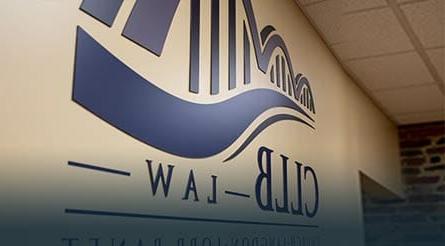Indiana Creditor’s Rights Attorney
Today’s economy is a challenge to both creditors and debtors. The financial stability of both parties depends on the other following through with the terms of the agreement. While much is made of borrowers who have gotten in over their heads, lenders have repayment rights and they are the ones left in the lurch when debtors default.
The creditor’s rights lawyers at Church, Langdon, Lopp, Banet Law have extensive experience representing a diverse range of clients in all aspects of the collection process. Whether you are an individual creditor or a financial institution, having an attorney on your side can often be all you need to motivate borrowers who are ignoring delinquency notices. We are committed to providing each of our clients with personal attention, from demand letter to settlement, foreclosure, or litigation.
We know how to use federal regulations and Indiana statutes to help creditors maximize their recovery in workout agreements, collection proceedings, bankruptcy cases, repossessions, and more. If traditional collection approaches aren’t working, you may have more options and protections than you think. Learn more about your creditor rights under the law during a confidential consultation. Contact us today to start finding solutions: complete our online form or call us at (812) 725-8224.
Real Estate
Under a typical note and mortgage transaction, a lender gives a loan to a borrower in exchange for the promise of repayment, plus interest and other costs. The real property is collateral for the mortgage loan. If the debt is not repaid and a workout agreement can’t be arranged, the lender has the right to foreclose on the property – the right to ask for it to be sold to cover the debt. Default can be triggered in a number of ways, including a missed payment, failure to pay taxes, and waste.
Each state has its own highly specific laws addressing the process that a lender must follow when a borrower defaults, including proper notice, opportunity to bring the loan current, and sale of the property. Because Indiana is a judicial foreclosure state, the process begins when the lender files a complaint. There is then a pre-foreclosure period before the sale during which the borrower can satisfy the debt. Typically, this is three months, but for older mortgages, it can be longer.
After the pre-foreclosure period expires, a copy of the order of sale and the judgment are issued to the sheriff for auction. Before a property can be sold, the sheriff must post a notice of the sale at the courthouse and must advertise the sale by publication once per week for three consecutive weeks in a local newspaper of general circulation. The first publication must be made at least 30 days before the date of the sale. The sheriff must also serve a copy of the notice of sale to the borrower at the time of the first advertisement. Upon completion of the sale, transfer of ownership is immediate and the borrower no longer has redemption rights.
A foreclosed property that sells for less than the amount still owed on the mortgage grants lenders the right to seek a deficiency judgment. In Indiana, the borrower is responsible for the difference between what the property sold for at auction and the amount of the original loan. Outside of a mortgage default, a creditor that files suit against a debtor and prevails can obtain a judgment lien, which attaches to real estate. The creditor then may be able to force a sale to collect on the judgment. A purchaser’s default on a land contract (also known as a contract for deed) can be foreclosed upon as well.
Other Debts
Real estate transactions are not the only ones that may require debt collection. Contractual obligations, delinquent accounts, and loan restructuring are just a few of the matters that creditors may need legal guidance. When a borrower’s payments become delinquent or a borrower seeks bankruptcy protection, financial creditors must enforce their rights. For example, creditors are entitled to share in the distribution of a borrower’s bankrupt estate, to challenge a borrower’s right to discharge the debt, and to be heard in court regarding the borrower’s plan when filing for certain types of bankruptcy. In addition to bankruptcy assistance, creditor’s rights lawyers can help with skip tracing, asset location, and enforcement of judgments as well as ensuring compliance with the Fair Debt Collection Practices Act and Fair Credit Reporting Act.
We Can Help
From filing suit seeking foreclosure to enforcing mortgages, liens, and judgments, the creditor’s rights lawyers at Church, Langdon, Lopp, Banet Law can help. We understand the issues and can guide you through the process. We will work closely with you and help you make the best decisions possible. For skilled and knowledgeable representation, contact us by calling 812-725-8224 or filling out our online form. Based in New Albany, Indiana, we proudly serve communities throughout Kentuckiana, including: Floyd County, IN; Harrison County, IN; Scott County, IN; Washington County, IN; Jefferson County, IN and Clark County, IN.

Attorney Jason Lopp
Jason Lopp has focused his practice on representing financial institutions, major corporations, family businesses and individuals. Licensed to practice in both Indiana and Kentucky, his practice includes real estate litigation, commercial real estate transactions, zoning, construction, general litigation, business planning and risk management matters. [ Attorney Bio ]






